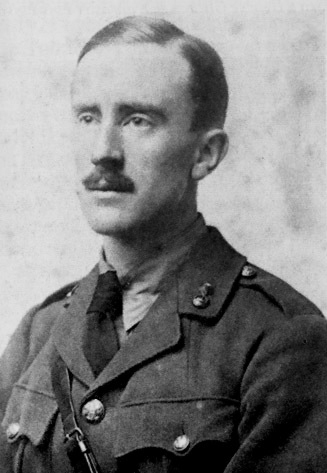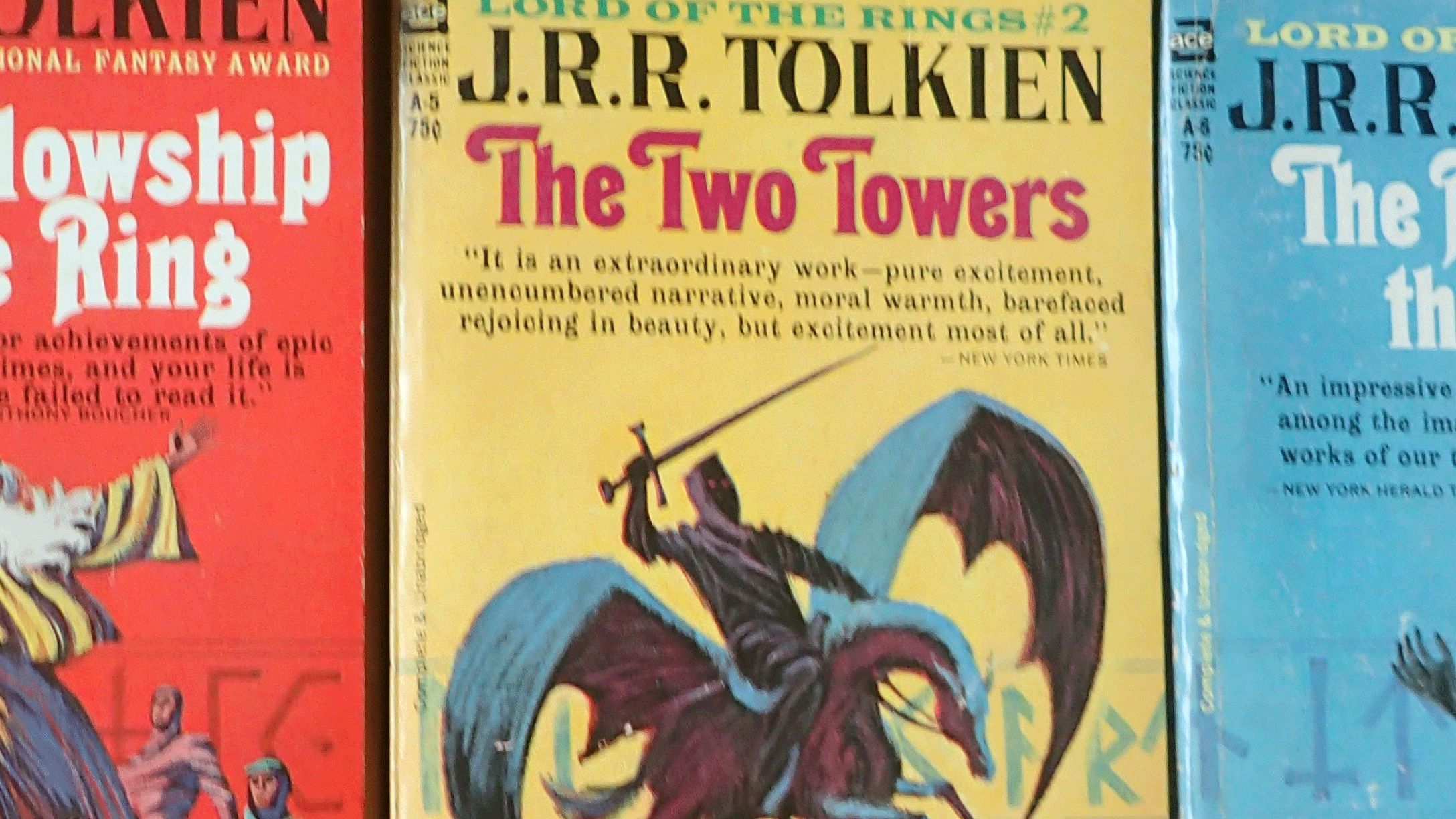May 4, 2019
Long Beach, California
Our old friend the music journalist Ned Raggett has started a Tolkien-themed podcast, I learned this morning, relaxing with my tea before starting in on a heavy workload. It was fun to hear his warm voice and his rather old-fashioned way of speaking, which is full of playful literary flourishes and librarianly charm (no accident, Ned really is a librarian.) It’s called, “By-The-Bywater.”
He also mentioned an oral history project at Marquette (“The J.R.R. Tolkien Fandom Oral History Collection”), which is collecting the thoughts of 6,000 Tolkien fans all over the world, “one for each of the Riders of Rohan that Théoden mustered and led to the aid of Gondor.” (I love that part!! Arise, arise, Riders of Théoden!)
I signed up immediately. A ton of spots were already taken; I have an appointment to record my contribution on May 16th.
Each participant has to answer the same three questions in a three-minute audio recording. Most people speak at around 130-150 words per minute, so that’s like 450 words because I talk fast. Wow! This is going to be harder than I thought, I realized, will I have to race like one of those terms and conditions things at the end of a radio commercial? Anyway I completely slacked off work, which I can in no way afford to do, and started in on my contribution to the posterity of Tolkien fandom.

[update: here’s the archived recording, published 8/1/2019]
When did you first encounter Tolkien?
Walter B. Hill Junior High, right here in Long Beach, California. A lot of us were reading The Lord of the Rings at about the same time—Michael and James, both of whom I’m still friends with more than 40 years on, and others too, I think. James may be an eminent Buddhist now, but back then he was a Holzhauer-level Tolkien scholar who could tell you the color of Gimli’s cloak, if you asked him. In the mid-70s this book was everything, it was everywhere, you just had to have read it, like you’d have to have the LP of Houses of the Holy.
Why are you a Tolkien fan?
Tolkien himself had lived under the shadow of Mordor; that is to say, he experienced in his own life the global threat of all good things being annihilated forever by violent and malevolent forces. His mind was formed as a youth in the darkness of the first world war, in which many of his school friends were killed.
The shadow we lived under in 1975 was not as black as it had been for him in 1916, but it wasn’t different in kind. Vietnam had ended, but middle schoolers in California were learning about the possibility of nuclear catastrophe, the Cold War, the looming environmental apocalypse (yes, even then), the endless killings and the betrayals of politicians and industrialists, all the greed and duplicity and real evil walking the earth. And everyone born since then has lived also under the shadow of Mordor, I think; and Tolkien’s books show a way to bear it, to fight back, even maybe to prevail. Despite its weaknesses—the simplistic and credulous view of monarchism, for example—there is a self-evident truth in the story of Middle-Earth, that so long as it is possible to conceive and imagine the overthrow of evil, well… that imagining contains within itself the proof, an ineradicable idea, that it is possible and could happen; and if it could, why then, maybe it must.
What has he meant to you?
He taught me so much. Tolkien is a wildly underrated prose stylist. He has such delicacy, elegance, the tempering of passion with restraint. He is romance itself. His essential conservatism could not fully control his teeming heart and so he just, he can just about kill you with feeling. But he’s not self-indulgent in his feeling, it comes at the proper time and in the scale of events. His taste is immaculate.
But mainly his vision straightens me out, keeps me on my path, helps me remember how to fight and live at the same time.
Faramir is my favorite person in the book.
I do not know what is happening. The reason of my waking mind tells me that great evil has befallen and we stand at the end of days. But my heart says nay; and all my limbs are light, and a hope and joy are come to me that no reason can deny.
When I was done, I pried Sam off my lap and stretched out for a bit.
Sam is the older of our two cats; he is about seventeen, and though he seems completely fine, for the moment, I have to admit he’s bit slower than usual, and he’s developed a touch of arthritis—not enough to keep him from leaping onto the furniture, but enough so I worry. I put him on my shoulder and he commenced to purr as I sat down again to work. My tea had gone cold but I felt really good.






